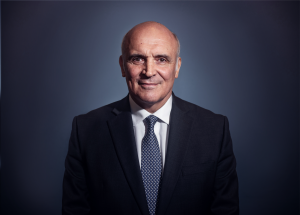Argentina’s economy may expand as much as 5.9 percent this year, more than the International Monetary Fund estimates, fueled by a surge in consumer spending and exports, Central Bank President Alfonso Prat-Gay said.
“There is a recovery of internal demand and an incipient recovery in consumption,” Prat-Gay told a Senate committee this morning. He said the economy would expand 4.8 percent for the year even with zero growth in the second half.
An automobiles sales report today for June provided the latest evidence the economy is strengthening: sales of cars and light trucks more than doubled from the year-earlier period and rose 14.4 percent from May to 12,835 units. Car production fell 1.1 percent from the year-earlier period.
“Demand for money is much higher than originally thought,”
said Prat-Gay, a former head of emerging market research at J.P. Morgan Chase & Co.
Argentina’s economy grew 5.4 percent in the first quarter, its first expansion in four years. The IMF estimates the economy will grow 4 percent in 2003.
The central banker also told senators he expects the inflation rate will be at the lower end of a 5 percent to 15 percent range this year. Consumer prices in June fell 0.1 percent
from May, the National Statistics Institute reported today. It is the second consecutive monthly decline as a rally in the peso has lowered import prices.
`Grow Faster’
Argentina’s inflation rate has been kept in check in part because of a government freeze on the price utilities can charge consumers. Economy Minister Roberto Lavagna said this evening the government will create a commission to analyze the industry and determine what price adjustments companies can make. Price increases must be approved by Congress, Lavagna said.
Prat-Gay said the central bank will boost the money supply by 1.7 billion pesos ($610 million) to 6.4 billion pesos in the last six months of the year after an increase of about 7 billion pesos in the first half. With consumer prices falling, some senators urged the central bank president to be more aggressive in bolstering growth.
“I don’t see a risk of inflation,” said Senator Rodolfo Terragno, with the Radical Party, the second-biggest in Congress.
“We have an unemployment problem that’s very serious and to get rid of the problem, we need to grow faster.”The currency, which lost about two-thirds of its value last year following a evaluation, has strengthened 20 percent this year, making it the third best-performing currency of 59 tracked by Bloomberg. The peso gained 0.1 percent today to 2.803 per U.S. dollar.
“The strengthening of the peso has greatly increased confidence,” said Jose Luis Espert, an economist at Espert & Asociados, a research company. “Consumers are shopping again.”
Argentina’s default on $95 billion of bonds in December 2001 and the devaluation a month later caused a 10.9 percent economic contraction last year, the steepest economic decline on record.

